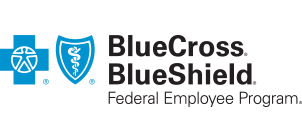The fight to reverse rising rates of opioid abuse in Clark County is a complex challenge that requires active participation from a variety of organizations and individuals, including, but not limited to legislators, law enforcement personnel, treatment professionals, and everyday citizens.
A look at Clark County’s Opioid Addiction Problem
Each instance of opioid addiction is a unique problem, but in general, Clark County’s opioid epidemic can be divided into two categories: heroin abuse and the abuse of prescription painkillers. While everyone has a role to play in protecting themselves and their families from all forms of drug abuse, the fight against prescription painkiller abuse is the one that may most depend upon the efforts of every Clark County resident.
The Dangers of Prescription Drug Abuse
People who abuse and become addicted to prescription painkillers typically become exposed to this form of substance abuse in one of two ways. In one scenario, people receive a prescription for an opioid-based painkiller from a doctor in order to treat a legitimate medical concern and then find that they are unable to stop taking the drugs after the condition has been alleviated or the initial prescription has run its course. For others, they first take prescription painkillers for a recreational high and become dependent upon them.
Regardless of why a person becomes addicted to a prescription painkiller, he or she will experience powerful urges to continue to abuse the drug, and will likely be forced to acquire it through illicit means, such as getting a fraudulent prescription, borrowing medications that have been prescribed to someone else, or stealing them.
The compulsion to borrow or steal prescription medications means that anyone who has these drugs in their medicine cabinets can be a potential target, and should take all necessary precautions to secure and, when the time comes, dispose of them in a safe manner.
Safe Disposal Locations for Prescription Drugs
If you have prescription medications that are out of date or otherwise no longer of use to you, please resist the temptation to merely throw them into the trash, dump them down the drain, or flush them down the toilet. Taking these actions risks the drugs being stolen or being accidentally ingested.
The best way to safely dispose of prescription medications in Clark County is to take them to a safe drug disposal location:
- Las Vegas Metropolitan Police Department (LVMPD) substations now feature drop boxes where you can anonymously dispose of prescription medications.
- These drop boxes are large, clearly labeled, mailbox-like structures.
- To dispose of any prescription medications, simply place the container that contains the medication into the slot at the top of the box.
Though these drop boxes are secure, it is always a good idea to remove your name and any other personal information from the bottle or box in which the medication is stored. This will help protect you from identity theft or other invasions of your privacy.
Disposing of Prescription Drugs at Home
If you cannot get to an LVMPD substation and need to dispose of your prescription medications at home, be sure to follow the following steps:
- Remove the medications from their bottle or box.
- Mix the medication with used coffee grounds, used kitty litter, or another absorbent and off-putting substance.
- Put this mixture into a sealable plastic bag or other items that can be closed up.
- Place this sealed or closed item into your trash can or garbage container.
- Remove all personal identification from the bottle or box, and dispose of these items in a separate trash bag or garbage container.
Again, safely securing and disposing of prescription medications protects your privacy, prevents the theft and illicit use of these substances, and also ensures that they will not be accidentally ingested by a child or animal.





















